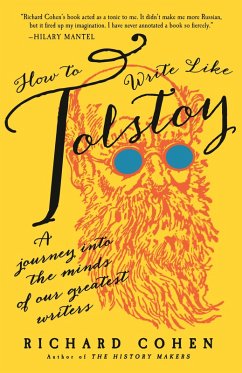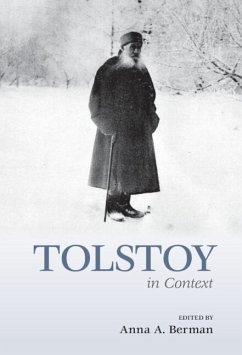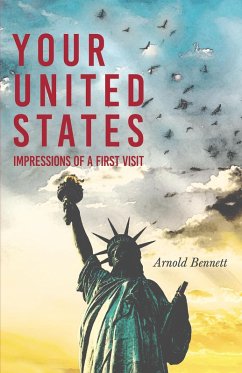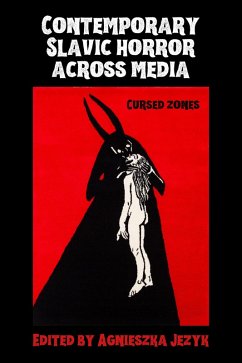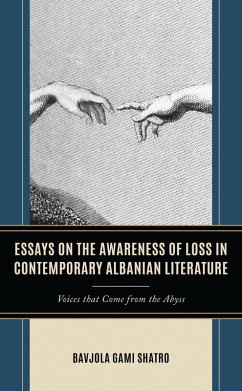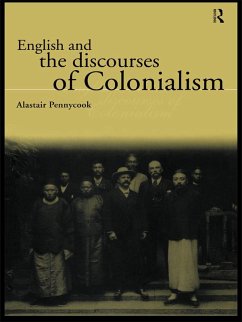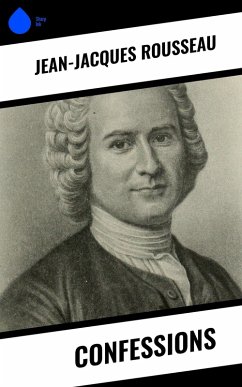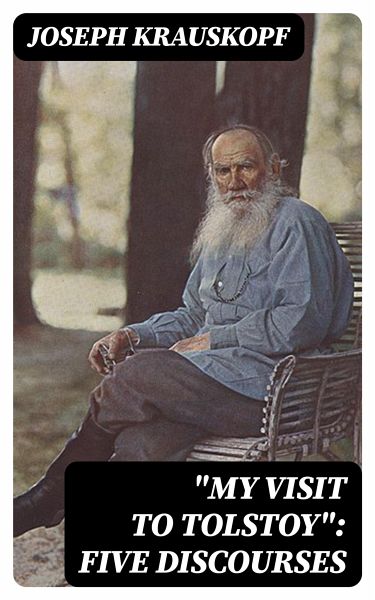
"My Visit to Tolstoy": Five Discourses (eBook, ePUB)
Versandkostenfrei!
Sofort per Download lieferbar
0,49 €
inkl. MwSt.
Weitere Ausgaben:

PAYBACK Punkte
0 °P sammeln!
In "My Visit to Tolstoy: Five Discourses," Joseph Krauskopf presents a thought-provoking exploration of the philosophy and spirituality of one of literature's greatest icons, Leo Tolstoy. Written in a carefully crafted literary style that intertwines personal reflection with intellectual rigor, Krauskopf's discourses delve into themes of morality, religion, and the pursuit of truth. Set against the backdrop of the early 20th century, a time of burgeoning existential exploration, the book captures the essence of Tolstoy's teachings while contextualizing them within the broader spectrum of his l...
In "My Visit to Tolstoy: Five Discourses," Joseph Krauskopf presents a thought-provoking exploration of the philosophy and spirituality of one of literature's greatest icons, Leo Tolstoy. Written in a carefully crafted literary style that intertwines personal reflection with intellectual rigor, Krauskopf's discourses delve into themes of morality, religion, and the pursuit of truth. Set against the backdrop of the early 20th century, a time of burgeoning existential exploration, the book captures the essence of Tolstoy's teachings while contextualizing them within the broader spectrum of his life and artistic oeuvre. Joseph Krauskopf, an esteemed rabbi and philosopher, draws on his extensive training in theology, paired with a profound admiration for Tolstoy's moral vision, to illuminate the transformative power of Tolstoy's ideas. Having experienced the complexities of faith and ethical living, Krauskopf approaches these discourses with both reverence and critical insight, making the philosophical inquiries accessible to a wide audience. His scholarly background and deep understanding of various religious traditions allow him to present Tolstoy's beliefs in a nuanced manner, thereby bridging gaps between cultural and theological paradigms. This book is a must-read for anyone intrigued by the moral struggles that define the human experience. Krauskopf's eloquent and engaging approach provides readers with significant insights not only into Tolstoy's worldview but also into their own spiritual journey. "My Visit to Tolstoy" invites reflections on the ethical dimensions of living, making it a vital contribution to both literary and philosophical discussions.
Dieser Download kann aus rechtlichen Gründen nur mit Rechnungsadresse in A, B, BG, CY, CZ, D, DK, EW, E, FIN, F, GR, H, IRL, I, LT, L, LR, M, NL, PL, P, R, S, SLO, SK ausgeliefert werden.






